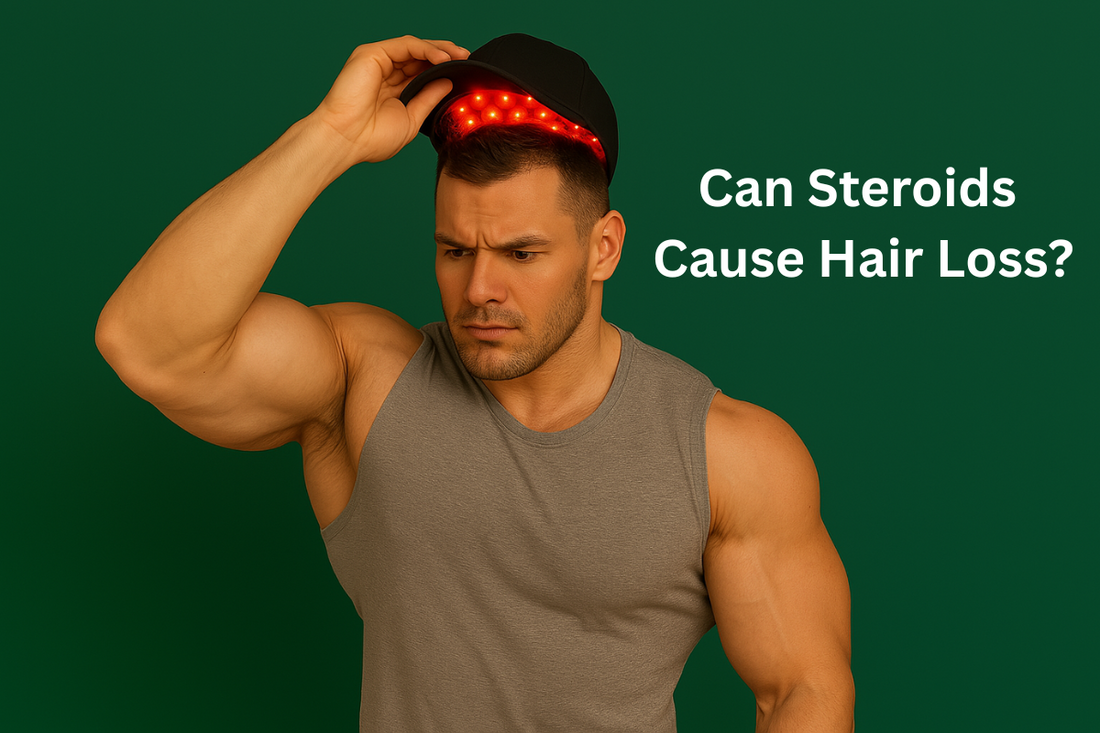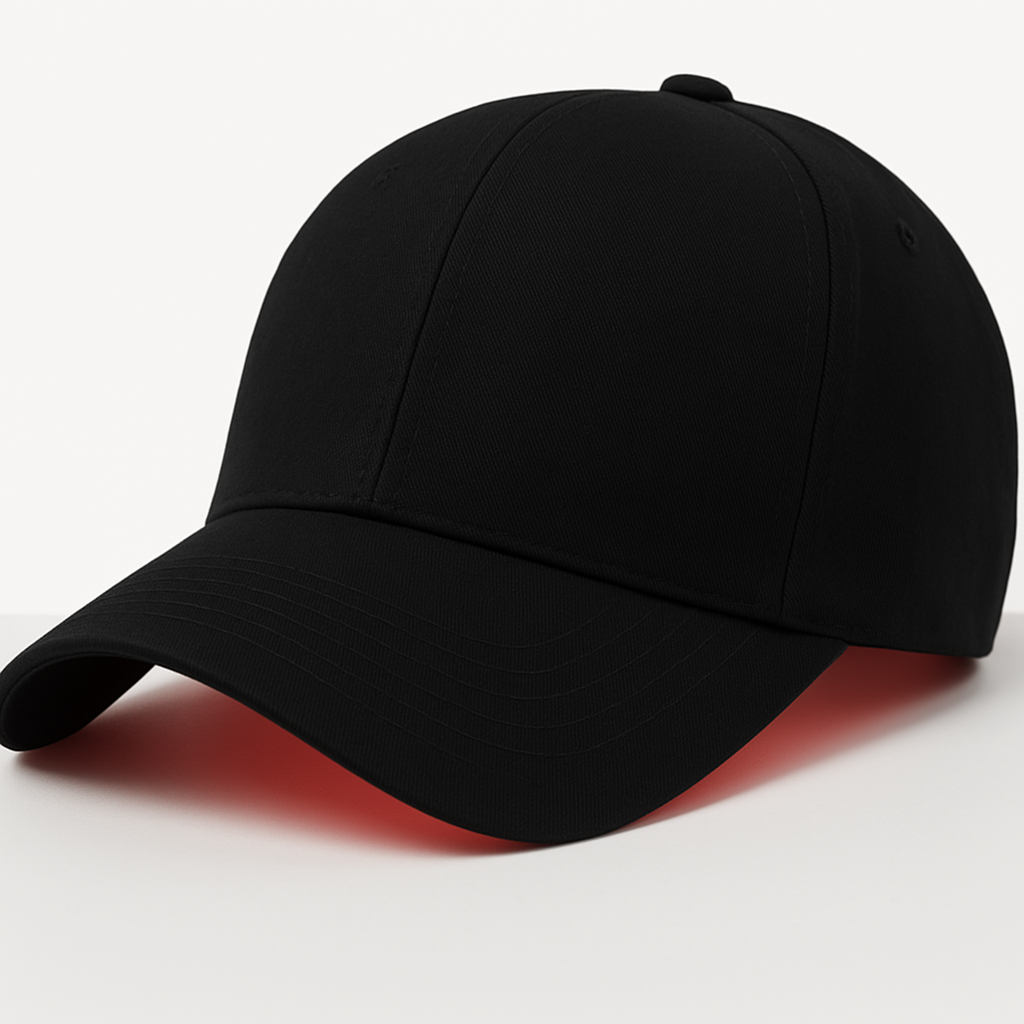
Can Steroids Cause Hair Loss?
If you’ve ever wondered, “Will steroids make me lose my hair?” you’re one of many. There is a large number of people who think about steroid use every year, whether for medical purposes or performance enhancement. Now, our opinion on steroid use is irrelevant but let us arm you with the facts and details you need to know about its link to hair loss. In this article, we hope to give you these answers and play a part in your own research around steroids.
The short answer? Yes, anabolic steroids can contribute to hair loss. The U.S. Food and Drug Administration (FDA) confirms that anabolic steroids come with a range of side effects, including hair thinning, acne, liver damage, and heart issues.
According to the FDA:
“Anabolic steroids can cause harmful effects including baldness, severe acne, liver damage, and heart disease.”
[https://www.fda.gov]
But why does this happen? The main culprit is dihydrotestosterone (DHT), a powerful byproduct of testosterone that shrinks hair follicles, making hair thinner and, in some cases, causing permanent baldness.
If this sounds worrying, don’t panic. Let’s break down exactly how steroids impact hair, who is at the highest risk, and what you can do to protect yourself.
How Different Steroids Affect Hair Loss
Not all steroids impact hair the same way. The two types of steroids we have looked into are, anabolic steroids and corticosteroids. Both affect hair through different mechanisms.
Anabolic Steroids (The Biggest Culprit to hair thinning)
Anabolic steroids are synthetic versions of testosterone, often used by bodybuilders and athletes to increase muscle mass and enhance performance. However, they come with a serious downside - they elevate testosterone levels, which then convert into DHT through the 5-alpha reductase enzyme.
DHT is the leading cause of androgenetic alopecia (male-pattern baldness). If you are genetically predisposed to hair loss, anabolic steroids can trigger and accelerate the process significantly.
A study published in the Journal of Clinical Endocrinology & Metabolism found that DHT is responsible for up to 95% of hair loss in men with androgenetic alopecia.
[https://academic.oup.com/jcem]
Once hair follicles start shrinking due to DHT overload, hair strands become thinner, weaker, and more prone to falling out. If exposure continues, the follicles eventually stop producing hair altogether, leading to permanent baldness.
Corticosteroids (Less Risky, But Still a Factor that could be contributing to hairloss)
Corticosteroids, used to treat conditions such as asthma, autoimmune diseases, and severe allergies, do not trigger hair loss in the same way as anabolic steroids. However, long-term corticosteroid use can still cause thinning hair due to changes in hormone levels and immune system suppression. While the impact is less severe than anabolic steroids, prolonged use can still weaken hair follicles and contribute to increased shedding.
Why Do Steroids Cause Hair Loss?
The primary reason anabolic steroids lead to hair loss is their effect on DHT levels. When steroids enter the body, they artificially increase testosterone, which converts into DHT at an accelerated rate. This process shrinks hair follicles, making them weaker and reducing the length of the hair growth cycle.
Over time, hair strands become thinner and more fragile, shedding more rapidly than they can be replaced. Eventually, if DHT exposure continues, the follicles miniaturize to the point where they stop growing hair entirely.
Dr. Sajjad Rajpar, a Consultant Dermatologist at Midland Skin, explains:
“Anabolic steroids dramatically increase testosterone levels, which in turn leads to an aggressive rise in DHT. If you are already predisposed to baldness, this process can be significantly accelerated.”
[https://www.midlandskin.co.uk/conditions/hair-loss/]
If male-pattern baldness runs in your family, using steroids can trigger it years - if not decades - earlier than expected.
How Soon Can Hair Loss Start After Taking Steroids?
Hair loss caused by steroids does not happen overnight. It depends on your genetics, the type of steroid used, dosage, and duration of use.
Some users notice shedding within weeks, while others experience thinning after months of regular steroid use. However, studies confirm that steroid-related hair loss tends to accelerate over time, especially if DHT levels remain consistently high.
A 2023 study published in Dermatology Reports found that 40% of anabolic steroid users reported noticeable hair thinning within six months of regular use.
[https://www.pagepress.org/journals/dermreports]
For some individuals, stopping steroid use may allow partial regrowth, but if follicles have miniaturised beyond repair, the damage is likely permanent.
The Impact of Steroids on Scalp Health
Steroid use doesn’t just affect your hair directly, it also alters the health of your scalp. When DHT levels rise, they trigger excess oil production, which can make the scalp greasy, inflamed, and prone to conditions like seborrhoeic dermatitis.
Seborrhoeic dermatitis is a common side effect of high DHT levels, causing itching, redness, and flaky skin. This excessive oil production clogs hair follicles, making it even harder for new hair to grow. Chronic scalp inflammation weakens hair roots, making them more prone to breakage and premature shedding.
Maintaining scalp hygiene is crucial for anyone concerned about steroid-related hair loss. Using DHT-blocking shampoos, keeping the scalp clean and hydrated, and avoiding harsh hair treatments can help reduce some of the damage.
Can Diet & Supplements Help Reduce Hair Loss?
A well-balanced diet plays a key role in reducing the severity of steroid-related hair loss. Research shows that deficiencies in certain vitamins and minerals can worsen the impact of steroids on hair follicles.
A study in the International Journal of Trichology found that 80% of people experiencing hair thinning were deficient in at least one key nutrient.
[https://www.ijtrichology.com]
Nutrients that support hair health include:
-
Biotin, which strengthens keratin production and improves hair thickness.
-
Vitamin D, essential for stimulating hair follicles and preventing shedding.
-
Zinc, which helps regulate DHT levels and supports follicle function.
-
Iron, necessary for delivering oxygen to hair follicles and maintaining healthy growth.
We recommend that you start incorporating nutrient-rich foods such as leafy greens, eggs, fatty fish, and nuts, as this can help counteract some of the effects of DHT-induced hair loss.
APEX Teams Final Thoughts
Yes, steroids can contribute to hair loss, but the extent of the damage depends on genetics, steroid type, and duration of use. If you’re worried about hair thinning, the best approach is to limit steroid use (Always consult your doctor if it's for medical use), monitor symptoms early, and consider alternative treatments like DHT blockers - We recommend our DHT blocking hair loss shampoo.
If you want to continue steriod use that's completely your choice, but we recommend taking steps to increase the health of your hair follicles with the APEX red light therapy hat.
If you don't fancy blocking DHT and boosting the health of your hair follicles but you worry about thinning then you have the cosmetic option to hide and conceal thinning with our hair fibres.
While some cases of steroid-related hair loss may be reversible, long-term use often leads to permanent follicle damage. If you’re considering steroids, it’s crucial to understand the risks and take proactive steps to protect your hair health.








